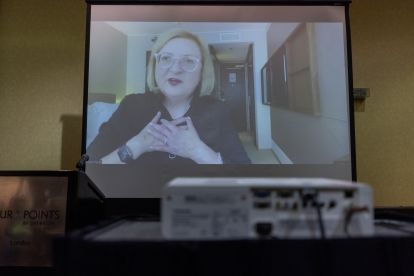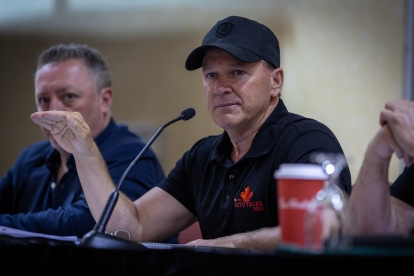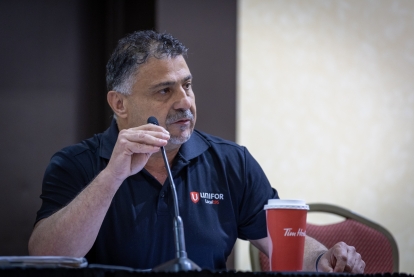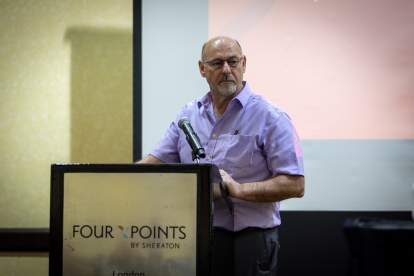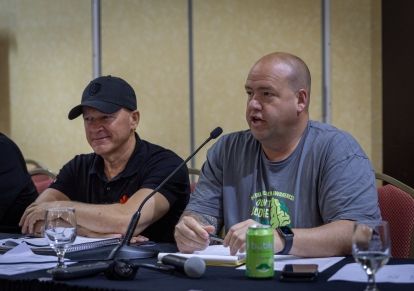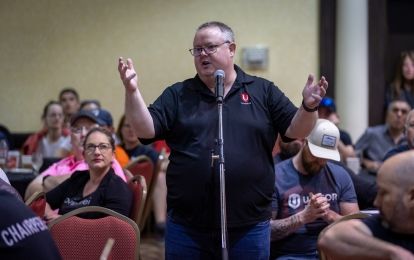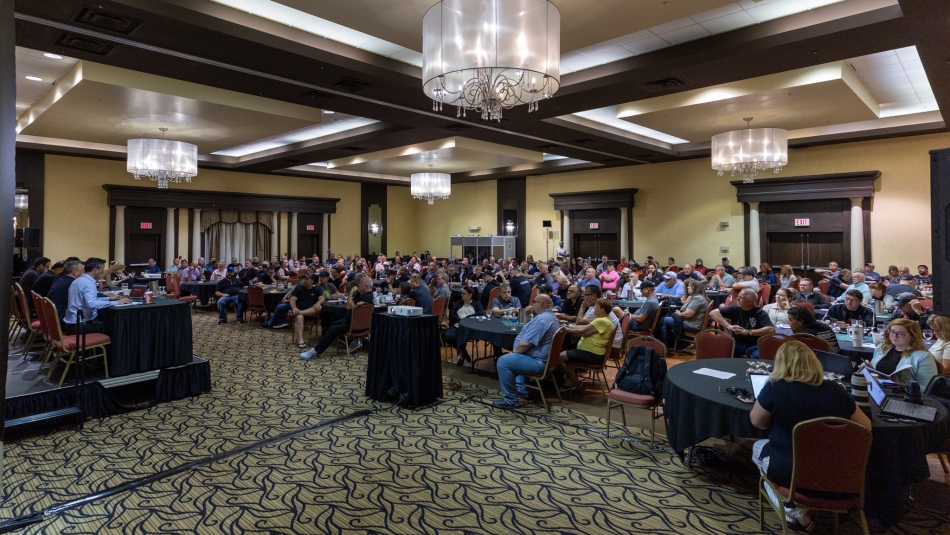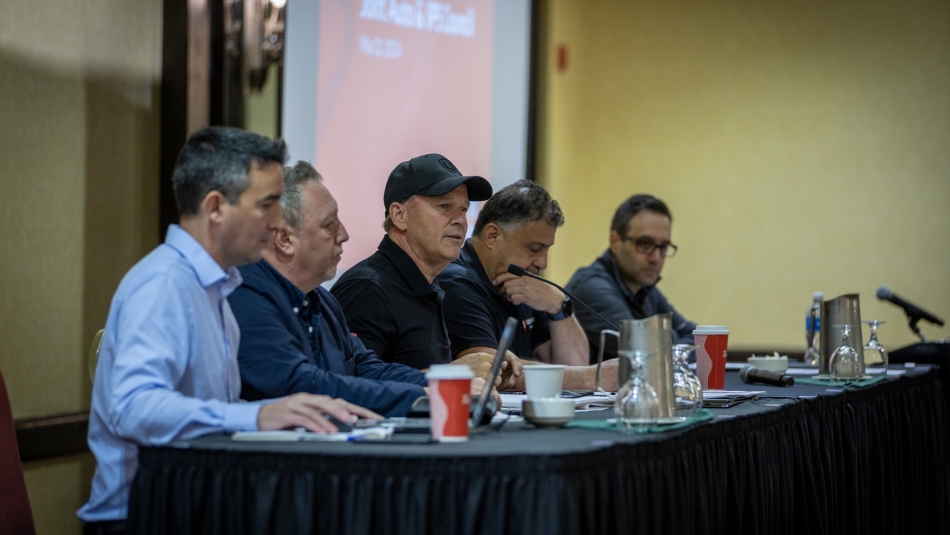
Share
The first joint session of Unifor’s Auto and IPS Councils brought autoworkers together to collaborate on strategies to meet the opportunities and challenges of the EV transition.
The joint Council assembled more than 180 auto sector union leadership and members from across the Detroit Three and independent parts suppliers on May 23 in London, Ontario.
In her address, Unifor National President Lana Payne spoke of the opportunities that come with new EV investments and the difficulties that members are facing during the transition period.
“We are facing a truly difficult and complex EV transition period – as we knew it would be,” Payne told the Council delegates. “We have been working hard to confront these challenges – and manage them – so that not a single worker is left behind.”
Payne spoke to delegates about the revival of the auto sector after near decimation during the Harper Conservative era and warned of Pierre Poilievre’s attempt to use EV investment as a wedge issue, risking auto jobs as a political ploy.
In the months following historic rounds of Detroit Three bargaining last fall, Payne said these contracts have had a spill over effect to IPS and beyond with workers across multiple sectors aspiring to obtain the gains achieved at the D3.
“The work that all of you are doing at the bargaining tables is raising the bar for autoworkers across Canada, both inside the union and elsewhere, inspiring them to demand better from their employers. Inspiring them to join our union.”
As he welcomed delegates Unifor Auto Council Chair and President of Local 200 John D’Agnolo spoke of the significance of the joint Council.
“It’s important that our members in the Auto and IPS sectors come together – we are joined at the hip. The EV future is coming.” said D’Agnolo. “ We bargained investment and its going to impact every one of us. The most important thing we bargained is investment in our jobs and in our communities.”
IPS Council President Emile Nabbout spoke of the need to take a proactive approach in the EV transition.
“The IPS Council is working constantly to deal with the challenges but there are many success stories through this EV transition. Change is sometimes difficult but at the end of the day we will figure out a way to be successful,” said Nabbout.
National Secretary-Treasurer Len Poirier called the Council a historic event on a number of fronts, pointing out a record number of women delegates in attendance and commending the delegates on the wide-ranging effect of the D3 negotiations.
“We have changed the landscape in Canada with the deals that you did, and I applaud everyone in the room, not only for the success of the past but for the success that you will achieve in the future,” Poirier said.
Updates were provided to the joint Council on the status of retooling in preparation of EV production at Unifor plants.
GM Bargaining Chair Jason Gale conveyed the mixed emotions that many auto workers are feeling.
“While it’s encouraging to see the transition progress in the St. Catharines plant, it is tempered with heavy concerns about the market conditions, EV supply chain challenges and consumer attitudes surrounding electric vehicles,” said Gale.
Addressing the delay in EV production at Oakville, Ford Bargaining Vice-Chair and Local 707 OAC Chairperson Marc Brennan assured delegates the union went to work quickly to discuss mitigation strategies with the company to help members facing extended downtime.
Stellantis Bargaining Chair and Local 444 President James Stewart emphasized the need for solidarity between Auto and IPS units to protect union jobs during the transition.
“We commit to stand in solidarity with our IPS members to do all we can to fight back against automakers who try to cut costs by outsourcing our work to non-union suppliers. Together we will work to ensure our members have a secure place within the new EV supply chain,” said Stewart.
Unifor Research Director Angelo DiCaro presented on EV trends, including the Canadian landscape for EV sales, production and auto job forecasts, investment in EV by the D3 and governments, projected impacts on Unifor IPS facilities and major IPS successes and organizing gains.
The Auto and IPS Councils divided in the afternoon to hear delegate reports and deal with council specific issues. Council then adjourned with a sense of optimism and the promise of future collaboration.
“Autoworkers, for the first time in a long time, see a future in this sector – for themselves and their children. They also know that it’s Unifor who’s delivering the goods. We are the ones who fought for this sector, when no one else did,” said Payne.
View the Facebook photo gallery here.


